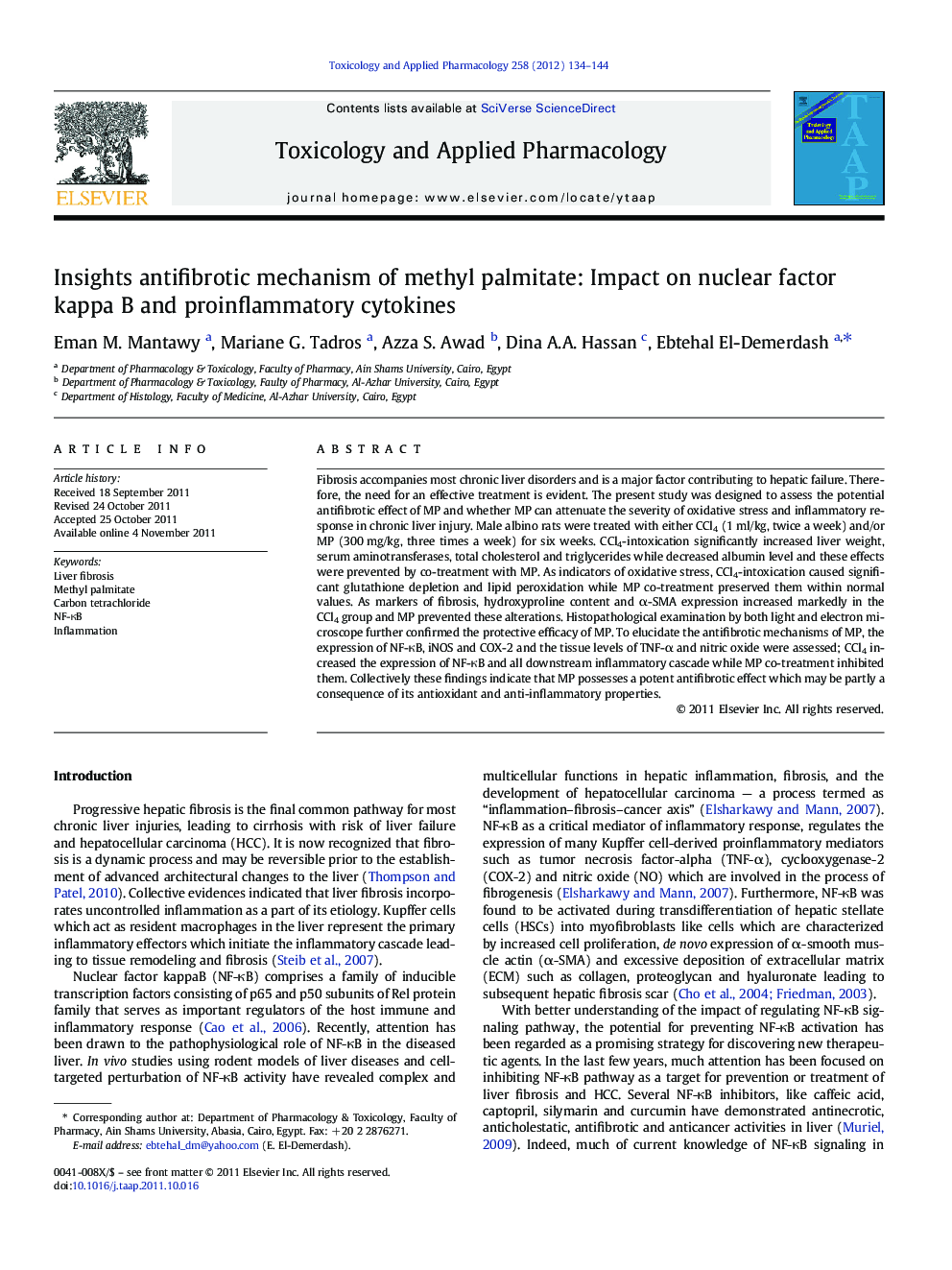| Article ID | Journal | Published Year | Pages | File Type |
|---|---|---|---|---|
| 2569415 | Toxicology and Applied Pharmacology | 2012 | 11 Pages |
Fibrosis accompanies most chronic liver disorders and is a major factor contributing to hepatic failure. Therefore, the need for an effective treatment is evident. The present study was designed to assess the potential antifibrotic effect of MP and whether MP can attenuate the severity of oxidative stress and inflammatory response in chronic liver injury. Male albino rats were treated with either CCl4 (1 ml/kg, twice a week) and/or MP (300 mg/kg, three times a week) for six weeks. CCl4-intoxication significantly increased liver weight, serum aminotransferases, total cholesterol and triglycerides while decreased albumin level and these effects were prevented by co-treatment with MP. As indicators of oxidative stress, CCl4-intoxication caused significant glutathione depletion and lipid peroxidation while MP co-treatment preserved them within normal values. As markers of fibrosis, hydroxyproline content and α-SMA expression increased markedly in the CCl4 group and MP prevented these alterations. Histopathological examination by both light and electron microscope further confirmed the protective efficacy of MP. To elucidate the antifibrotic mechanisms of MP, the expression of NF-κB, iNOS and COX-2 and the tissue levels of TNF-α and nitric oxide were assessed; CCl4 increased the expression of NF-κB and all downstream inflammatory cascade while MP co-treatment inhibited them. Collectively these findings indicate that MP possesses a potent antifibrotic effect which may be partly a consequence of its antioxidant and anti-inflammatory properties.
► Methyl palmitate is free fatty acid methyl ester. ► It possesses a strong antifibrotic effect. ► It inhibits NF-κB and the consequent proinflammatory and oxidative stress response.
